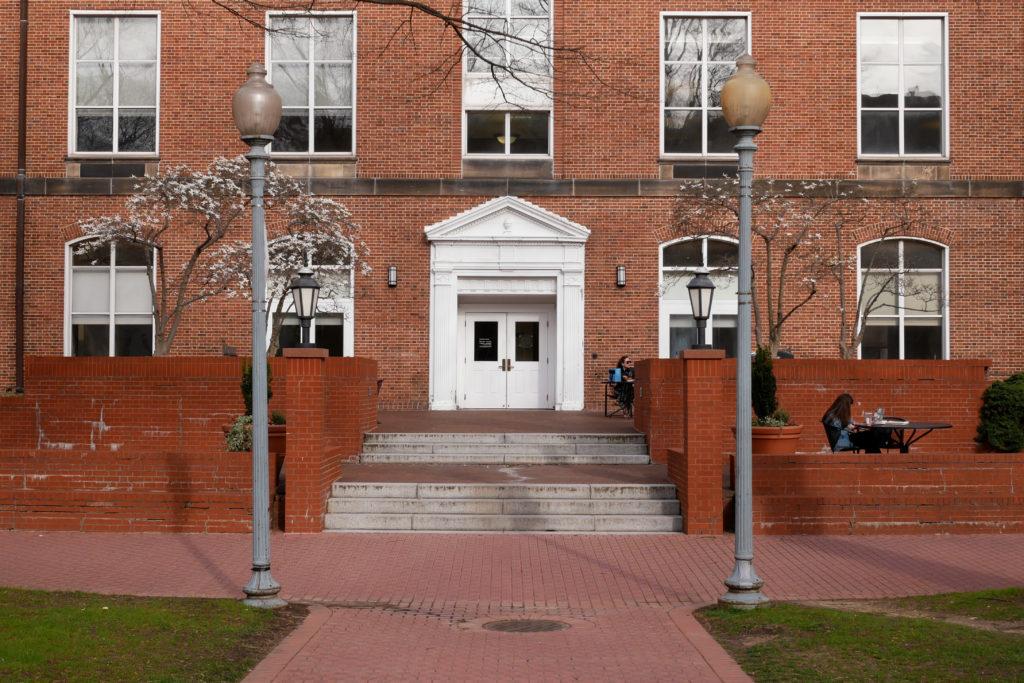The law school now houses an online database stocked with information on music copyright infringement cases.
The Music Copyright Infringement Resource, which features information like judicial opinions from music copyright infringement cases, relocated from the University of Southern California to the law school this semester, the law school announced earlier this month. Law school faculty said hosting the resource will allow students and faculty to add and access information on music copyright infringement cases, better preparing law school stakeholders to conduct research on the topic.
The free online database, which was originally created in 1997, features information on more than 200 music copyright infringement cases litigated in the United States since 1844. The resource also includes access to sheet music and sound files of music involved in copyright disputes.
Charles Cronin, a visiting scholar at the law school who created the database, said he decided to relocate the resource to the University in January because the law school is located in D.C., where legislation on intellectual property law policy is often debated. He said the law school has a “strong” intellectual property law program that he hopes will permanently host the online resource.
“It became clear that it was a much better fit at GW, and it’s one of the strongest intellectual property law programs in the country,” Cronin said. “It’s a good fit in so many ways.”
Cronin said the resource helps consolidate information on music copyright infringement cases into a single online platform, which can help students identify trends in past disputes, like changing definitions of copyright infringement and recent increases in the number of cases filed.
“It’s a good starting point for students who want to delve into a particular case or get an overview of this area in general,” he said.
Cronin said he will work with Robert Brauneis, a professor of law and the co-director of the intellectual property law program, to expand the resource at the law school. Cronin plans to add more information on international music copyright infringement cases and create a discussion forum for law students, faculty, scholars and the public to share viewpoints on music copyright infringement litigation and legislation.
Brauneis said hosting the database at the University will allow law school students to “maintain” the website as research assistants. Students will update the database when new music copyright infringement cases are filed, he said.
He said allowing students to make the updates will broaden their knowledge of case law pertinent to music copyright infringement, which will help them conduct more informed research on the subject, which is becoming increasingly popular.
“It means that law students, in particular, can and are working on maintaining it, so they get valuable experience and ruminative experience in maintaining the site and thinking about music copyright litigation over a long period of time,” he said.
Brauneis said adding information to the database on music copyright infringement cases litigated outside the United States will better prepare students to perform cross-cultural analyses of music copyright infringement law.
“It’s really interesting from a comparative perspective to see how those cases come out and whether the analysis is different in a different country and how that maybe should inform U.S. law, or maybe conversely maybe how U.S. law should inform foreign law,” he said.
He added that international students will have the opportunity to translate music copyright infringement cases written in their native languages, helping to bring more international music copyright dispute cases to the platform.
International law students made up 10 percent of the law school’s student population in 2018, according to institutional data.
Roger Schechter, a professor of law, said hosting the database will further raise the profile of GW’s intellectual property law program on a national scale because anyone who uses the resource will know it is affiliated with the University.
“Knowing that this is a resource that is hosted on our servers, it’s likely to also cause visitors to explore other aspects of our program,” he said. “They may learn about conferences that we’re hosting, and they may learn about some of the publications that various people here have recently sent out into the world.”





